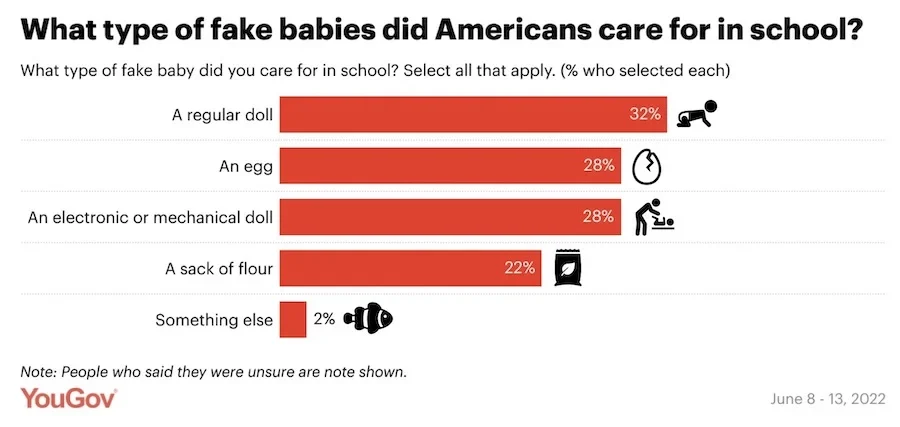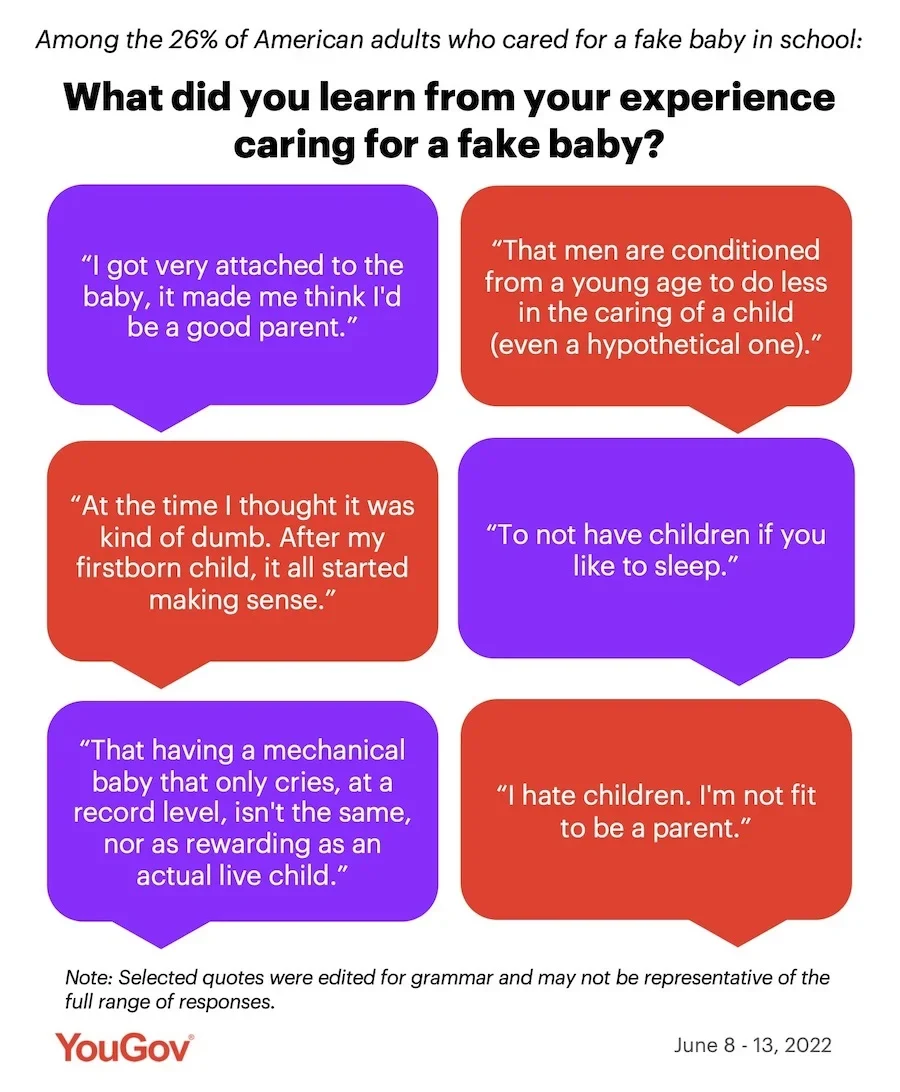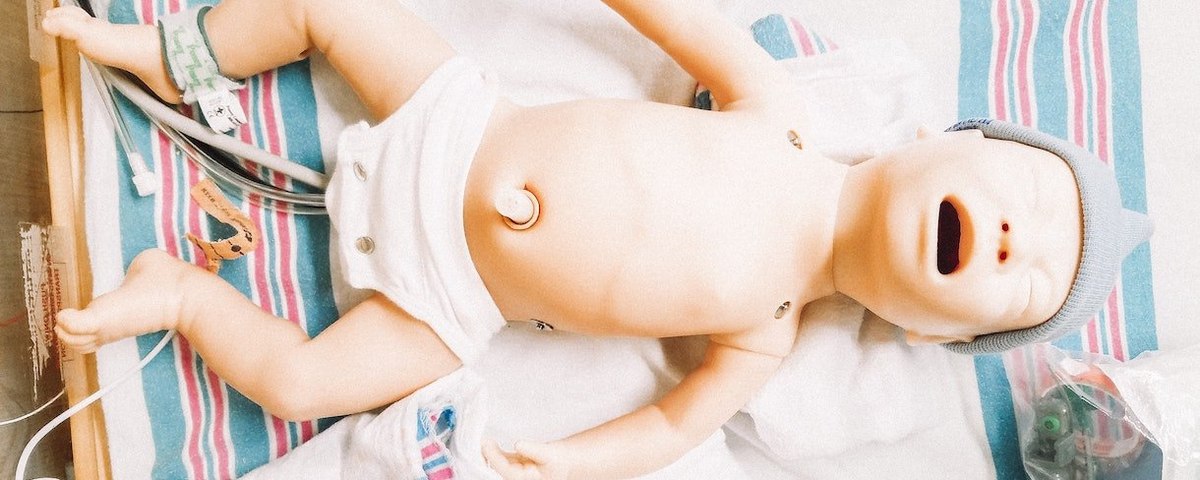An American tradition apparently lives on, according to a new poll’s finding that one in four Americans – including one-third of adults under 30 – have taken a class in school that involved caring for a fake baby. The assignment, which was originally designed to expose students to the challenges of parenting and reduce teen pregnancy, appears to have peaked in the 1990s and 2000s, based on our calculation of when people who’ve graduated and say they’ve participated would’ve been in school. Americans who came of age before this period are significantly less likely to have engaged in a simulated-infant exercise, though a sizable share still say they did.
What type of pretend babies were American students assigned to care for? People who participated are most likely to say they cared for a regular doll (32%), followed by an egg (28%), an electronic or mechanical doll (28%), and a sack of flour (22%). Only 2% say they cared for something else — which, according to open-end responses, included a goldfish, a mouse, and a lemon.

Are these experiences considered useful? While one study has suggested that pretend-baby assignments increase rather than decrease teen-pregnancy rates, many people say they enjoyed the exercise and found some utility in it. Most people who participated say their experience was useful, though most of those only say it was somewhat useful. Among all adults, including the ones without a pretend-baby assignment in their school records, slightly fewer say the practice has practical utility.
When asked what they learned from the experience, responses ranged significantly: Some people said they learned that infants require around-the-clock care, while others lamented they learned absolutely nothing at all from the assignment.

— Carl Bialik and Linley Sanders contributed to this article.
This poll was conducted on June 8 - 13, 2022, among 1,000 U.S. adult citizens. Explore more on the methodology and data for this poll.
Image: Photo by Marissa Daeger on Unsplash











